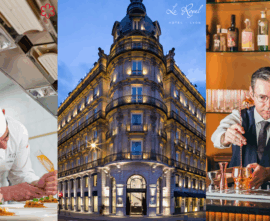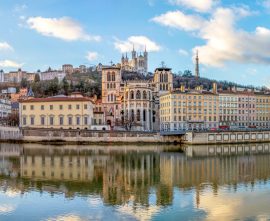How important is the environment in the hospitality and food service sectors?
Published on 29 March 2023
Faire défiler la pageThe food and tourism industries represent two major contributors to greenhouse gas emissions. Given the threat of climate disruption that we are facing, these two sectors must therefore be reimagined in order to become more sustainable. While some responsibility for this lies with the public authorities, it must also come from professionals in the field who can contribute to making things happen.
This is particularly the case in the hospitality and food service sectors, where environmental concerns are increasingly important. And for good reason, this new focus on the environment in the hospitality and food service industries is the result of both the need to take action, and the real expectation of progress in this sense from consumers.
So much so, that the issue of the environment in the hospitality and food service industries is creating new challenges and professional roles within these sectors.
Hospitality and restaurants: towards a green label
European customers are increasingly sensitive to the environmental commitments of hotels and restaurants. In response to this, more and more establishments are making efforts to:
- Limit their carbon footprint during the construction or renovation of venues;
- Encourage reduction of waste in raw materials and energy (water, electricity, food, etc.);
- Source products locally;
- …
And the best performers are now being rewarded with new certifications that testify to their efforts for the environment. In the hospitality sector these green labels include EU Ecolabel, the Green Key and Green Tourism, while the restaurant sector also boasts a plethora including Ecotable, FIG, Slow Food and the famous Green Star in the Michelin Guide.
DID YOU KNOW?
Our 1* Michelin restaurant, Saisons, is equipped with greenhouses with organic beds, using saved seeds that take root directly on living soil. The produce feeds the kitchens of our training restaurant, which has also been equipped with the Winnow artificial intelligence solution, aimed at combatting food waste.
Sustainable hotels and restaurants: new professional roles to lead change
While making your establishment a sustainable restaurant or hotel represents a completely honourable objective and an important marketing asset, this is a complex undertaking which requires special skills and total commitment.
To respond to this, new professions are emerging in the hospitality and restaurant sectors. These professionals in green hospitality and restaurants are there to support establishments as they move towards their sustainable transition, to assist them in highlighting their green credentials, or in developing new projects.
Such specialists include, for example:
- Consultants specialised in food production;
- Developers of eco-responsible restaurant and hotel concepts;
- CSR (Corporate Social Responsibility) managers of hotel or restaurant groups;
- Consultants in sustainable restaurants and hospitality.
In addition to the traditional know-how of the hospitality and restaurant professions, these specific positions require further contemporary skills related to transition management, marketing, management and commerce.
At Institut Paul Bocuse, all of these skills are taught through theoretical modules (introduction to CSR, Sustainable Hospitality, Sustainable Development Management, Business Ethics etc.) and practical work within the school’s various establishments.
This training will allow you to maximise your chances of combining your commitment to the environment with your passion for hospitality and food service.
We are convinced that sustainability represents the future in the hospitality and restaurant professions, which is why our pedagogical approach focuses on this future across each of our programmes.
Find out more about the programmes and courses :















